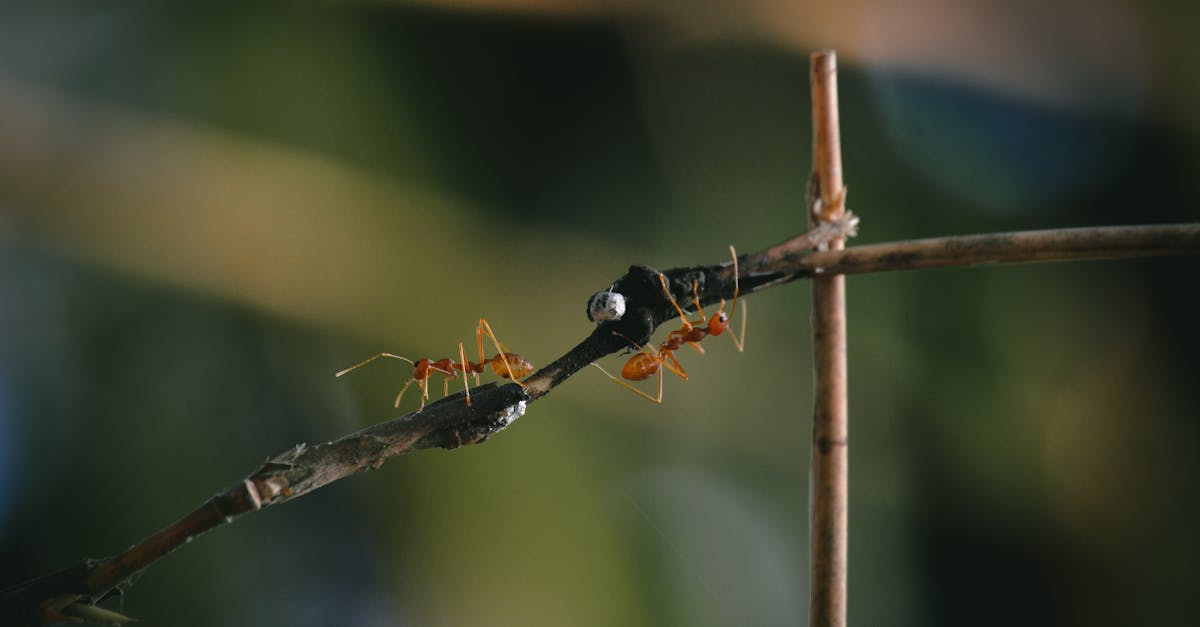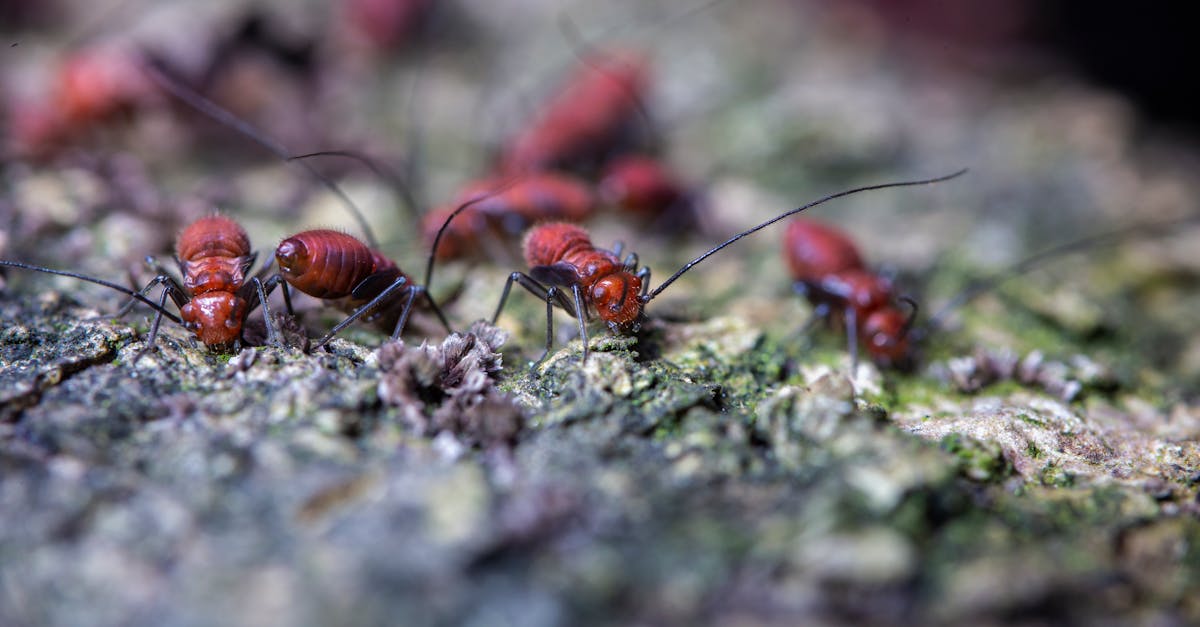Discovering a World Beneath Our Feet
When I first told my friends that I had taken up ant-keeping as a hobby, they looked at me as if I had lost my mind. “Ants? Really?” they asked, eyebrows raised in disbelief. But let me tell you, diving into the world of ants has been one of the most fascinating and joyful experiences of my life. If you’re like me and love discovering the hidden wonders of the world, then this unconventional hobby might just blow your mind too.
Why Ants? The Unexpected Allure
You might be wondering why anyone would choose ants as a hobby. I’ve often wondered this myself, and the answer is multifaceted. For starters, ants are incredibly complex creatures. Their social structures, communication methods, and survival strategies are nothing short of awe-inspiring. It’s interesting that such tiny beings can exhibit such intricate behaviours that rival even the most advanced human societies.
From my point of view, the allure of ant-keeping lies in the endless opportunities for learning and discovery. Each colony has its own unique characteristics and behaviours, providing a constant source of fascination. It’s funny how something so small can have such a big impact on your perspective of the natural world.
Setting Up Your Ant Colony: A Step-by-Step Guide
If you’re intrigued by the idea of ant-keeping, the first step is to set up your own ant colony. Here’s a thought: it’s not as complicated as you might think. Here’s a simple guide to get you started:
-
Choose Your Ant Species: Not all ants are created equal. Some species are better suited for beginners, such as the Lasius niger (black garden ant) or the Formica fusca (silky ant). Do some research to find a species that matches your experience level and interests.
-
Get a Formicarium: A formicarium is an artificial ant nest. You can buy one online or make your own using materials like plaster, acrylic, or even 3D printing. Make sure it has enough space and ventilation for your ants to thrive.
-
Collect Your Ants: You can either catch a queen ant during the nuptial flight season or buy one from a reputable seller. The queen is crucial, as she will lay the eggs that will become your colony.
-
Set Up the Environment: Ants need a specific environment to thrive. This includes the right temperature, humidity, and food. Most ants enjoy a diet of sugar water and protein, such as insects or specialized ant food.
-
Observe and Enjoy: Once your colony is set up, the real fun begins! Spend time observing your ants, taking notes, and even conducting experiments to learn more about their behaviour.
Interestingly enough, I was struck by how quickly I became attached to my ant colony. Watching them work together, communicate, and solve problems is nothing short of mesmerizing.
The Joy of Observation: What You’ll Learn
One thing I’ve learned from ant-keeping is that there’s always something new to discover. Ants are incredibly industrious and resourceful creatures. Here are some fascinating behaviours you might observe:
-
Communication: Ants use pheromones to communicate with each other. They leave scent trails to guide their fellow ants to food sources or alert them to danger. It’s safe to say that their communication system is both complex and efficient.
-
Division of Labour: In an ant colony, each member has a specific role. There are workers, soldiers, and the queen, each contributing to the colony’s survival. It hit me that this division of labour is similar to human societies, where everyone has a role to play.
-
Problem-Solving: Ants are excellent problem solvers. They can navigate complex environments, find the shortest path to food, and even work together to move large objects. I’ve always thought that their problem-solving abilities are a testament to their intelligence.
-
Adaptability: Ants are incredibly adaptable. They can thrive in a variety of environments, from rainforests to deserts. This adaptability is one of the reasons why they are so successful as a species.
What’s surprising is how much you can learn about teamwork, communication, and problem-solving from these tiny creatures. It’s worth mentioning that observing ants can also be a great stress-reliever. There’s something incredibly calming about watching them go about their daily activities.
The Challenges and Rewards of Ant-Keeping
Like any hobby, ant-keeping comes with its own set of challenges. But from my point of view, the rewards far outweigh the difficulties. Here are some common challenges and how to overcome them:
-
Maintaining the Right Environment: Ants are sensitive to changes in their environment. You’ll need to monitor temperature, humidity, and food supply regularly. It’s funny how something as simple as a slight change in temperature can affect their behaviour.
-
Preventing Escapes: Ants are natural escape artists. Make sure your formicarium is secure and check for any potential escape routes. A little-known fact is that some ants can even squeeze through tiny gaps, so be vigilant!
-
Dealing with Pests: Ant colonies can attract pests like mites or mold. Regular cleaning and maintenance can help prevent these issues. It’s safe to say that keeping a clean environment is crucial for a healthy colony.
-
Patience: Ant-keeping requires patience. It can take time for a colony to grow and for behaviours to become apparent. But trust me, the wait is worth it.
Looking back, I can’t forget the first time I saw my colony successfully navigate a complex maze I had set up for them. It was a moment of pure joy and pride. The truth is, the challenges of ant-keeping make the rewards even more satisfying.
The Broader Impact: Learning and Teaching
One thing I’ve learned from ant-keeping is that it’s not just a solitary hobby. It’s an excellent way to engage with others and share your passion for nature. If you ask me, ants are a perfect gateway to spark interest in science and biology, especially in children.
Here are some ways you can use your ant-keeping hobby to educate and inspire others:
-
School Projects: Ant colonies make fantastic subjects for school projects. They can help teach children about biology, ecology, and even social structures. I’ve been meaning to suggest this to my local school.
-
Community Workshops: Organize workshops or talks in your community to share your knowledge and passion for ants. You’d be surprised at how many people are interested in learning more about these tiny creatures.
-
Online Communities: Join online forums and social media groups dedicated to ant-keeping. Share your experiences, ask questions, and connect with fellow enthusiasts. The ant-keeping community is incredibly supportive and welcoming.
Interestingly enough, I was just thinking about how much I’ve learned from interacting with other ant-keepers. Their insights and experiences have enriched my own journey and deepened my appreciation for these remarkable insects.
What’s Next? Taking Your Hobby to the Next Level
If you’re already an ant-keeper or are considering taking up this hobby, there are always ways to take it to the next level. Here are some ideas:
-
Advanced Formicariums: Experiment with different types of formicariums, such as naturalistic setups or multi-chambered nests. This can provide new challenges and opportunities for observation.
-
Species Diversity: Consider keeping multiple ant species to observe their different behaviours and interactions. It’s interesting how each species has its own unique characteristics and quirks.
-
Scientific Research: Conduct your own experiments and contribute to citizen science projects. Your observations can provide valuable data for researchers studying ant behaviour and ecology.
-
Ant Art: Combine your love for ants with creativity. Create art inspired by your ant colony, such as drawings, paintings, or even sculptures. It’s a great way to express your passion and share it with others.
The other day, I was struck by the idea of creating a time-lapse video of my ants building their nest. It’s a project I’m excited to start, and I can’t wait to see the results.
Embracing the Unconventional: Why You Should Give Ant-Keeping a Try
To put it simply, ant-keeping is a hobby that offers endless opportunities for learning, discovery, and joy. It’s funny how something as small as an ant can have such a profound impact on your life. If you’re looking for a new hobby that’s both unconventional and deeply rewarding, give ant-keeping a try. You might just find yourself as captivated by these tiny creatures as I am.
Now that I think about it, ant-keeping has not only deepened my appreciation for the natural world but also taught me valuable lessons about patience, observation, and the beauty of complexity. It’s safe to say that this unconventional hobby has truly blown my mind, and I hope it does the same for you.
So, what are you waiting for? Dive into the fascinating world of ants and discover the wonders that lie beneath our feet. Trust me, it’s a journey you’ll never forget. 🐜












